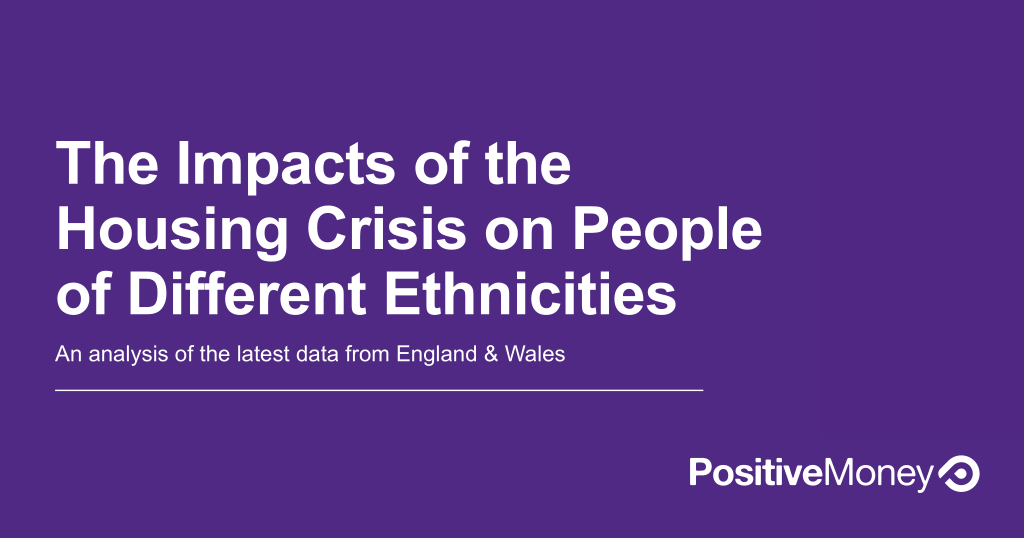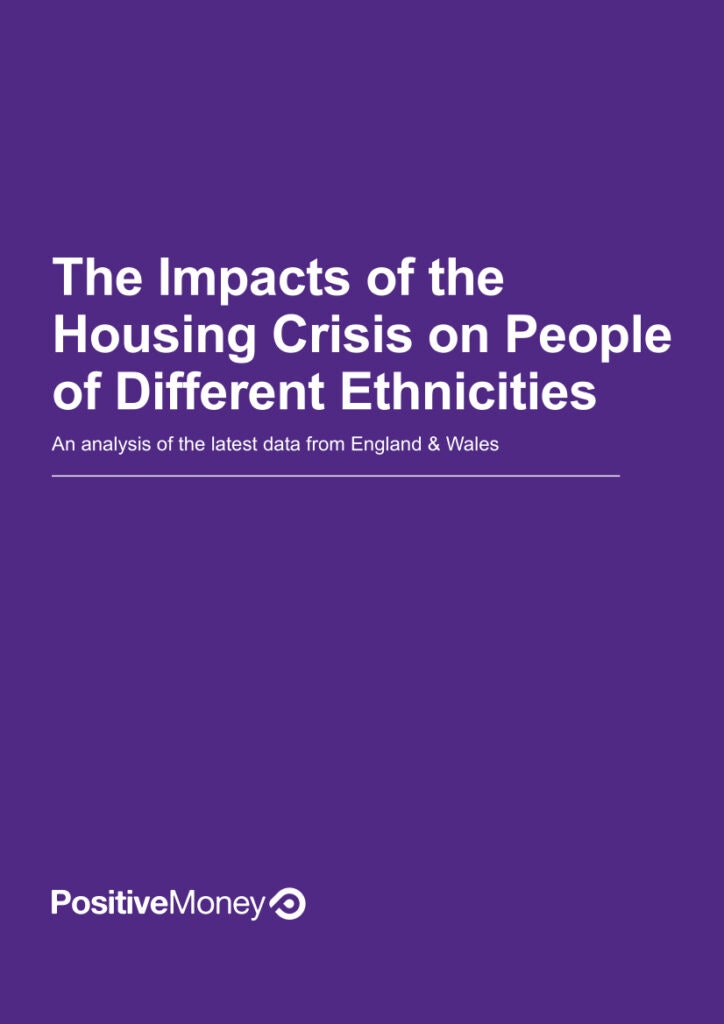The Impacts of the Housing Crisis on People of Different Ethnicities

Published April 2023
Campaigners have argued that the crisis of overcrowding, the amount people have to spend on their homes, and the experiences of people trapped in an expensive and precarious rental sector requires our housing system to be radically reformed.
In this briefing we look specifically at how the housing crisis is experienced by different ethnic groups in England and Wales. We reveal the uneven impact of this broken system across different demographics, and how this fits into the two tier housing system that is emerging – of those who rent and of those who do not – and what this means for policymakers seeking reform.

PDF DOWNLOAD:
Download full report here
(Free, PDF, 22 pages)
Our findings confirm that the housing crisis is of an order of magnitude more extreme for Black, Asian and ethnic minority communities in England and Wales. We reveal that decreasing rates of homeownership and high rates of overcrowding are largely experienced by ethnic minorities, with the falls in homeownership over the last ten years entirely due to decreasing or persistently low rates of Black, Pakistani and Bangladeshi households owning their own homes. We also look at overcrowding and standards of living, finding that between a fifth and a quarter of these same households are overcrowded, and that their homes haven’t improved in quality as quickly as for other demographics in the last decades.
The research illustrates that the lack of progress on the housing crisis over the last twenty years has particularly affected Black, Asian and ethnic minority communities in the UK. It starkly illustrates that the transformation of our homes into vehicles for accumulating wealth over the last decades has created a two-tier housing system. On the one hand, an expensive system of homeownership; on the other, a precarious, unaffordable and dangerous rental sector, that the majority of Black, Bangladeshi, Mixed Race, Arab, Roma and Traveller households have little option but to live in.
The briefing sets out the urgent need for serious long term plans from policymakers that halt the invasion of our homes by financial interests, grow the social housing stock, and protect people from poor quality, unaffordable and overcrowded homes.
PDF DOWNLOAD:
Download full report here (Free, PDF, 22 pages)